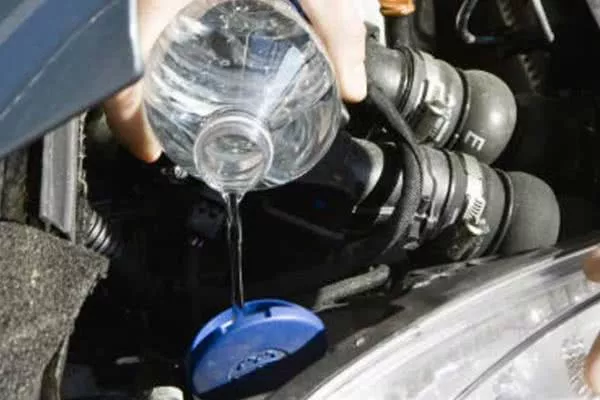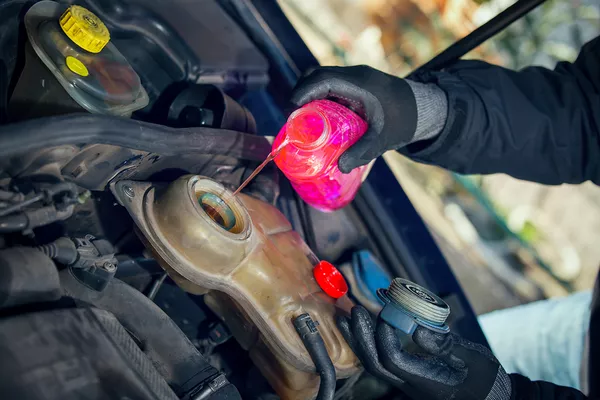Car coolant or distilled water?
Many motorists wonder if it is better to use coolant or distilled water for the radiator. In our today’s article on Philkotse.com, we discuss how to treat your radiator the best.
In fact, there’s no one better between them. While the distilled water is superior in terms of heat transfer, it also causes corrosion on the cooling system’s metal parts.
There used to be time when car coolants caused corrosion but its modern versions have come with rust inhibitors to give you peace of mind. In other words, we could say that the best use for the radiator should be a mixture of both products so that you radiator can works best with optimal transfer properties and rust inhibitors.
So the question is how should we make this mixture?
>>> Related: Car's overheating with full coolant: What's wrong?

The distilled water is superior in terms of heat transfer
Video: Mixing Distilled water Coolant from Concentrate - Antifreeze Coolant Mixing - Antifreeze Coolant Mix
>>> Related: 3 symptoms of a bad radiator cap & replacement cost
How to make the perfect mixture of car coolant and distilled water
Remember that the 50 - 50 mixture of the two is recommended in the extremely cold weather so that the water won’t freeze. Taking that for reference, with quite high temperatures in our tropical climate, Philippine car owners may use a proportion of 20-80 car coolant and distilled water or even higher of 10-90.
Also, keep in mind we’re referring the true distilled water, not the one that is always available in your house that contains minerals, to impede lime scales’ forming in the cooling system.
Car coolant can be purchased online from popular e-commerce platforms such as Shopee and Lazada. According to these websites, car coolant price in the Philippines starts at around Php 300 for 1 liter.
>>> Read also: Top 4 essential fluids in your car

Latest versions of car coolant have come with rust inhibitors to give you peace of mind
>>> Related: Symptoms of a bad or failing water pump in cars
Apart from the coolant, rust inhibitors are also found in the different cooling system additives which augment the water’s heat transfer properties. All these additives work the same process which is to reduce the water’s surface tension, providing more surface room against the cooling system.
Waterless car coolant can also be an option. Using this product in a pressureless cooling system, the rubber hoses could survive along with the car and leaks are optimally avoided.
>>> Check out more car tips and advice on Philkotse.com











